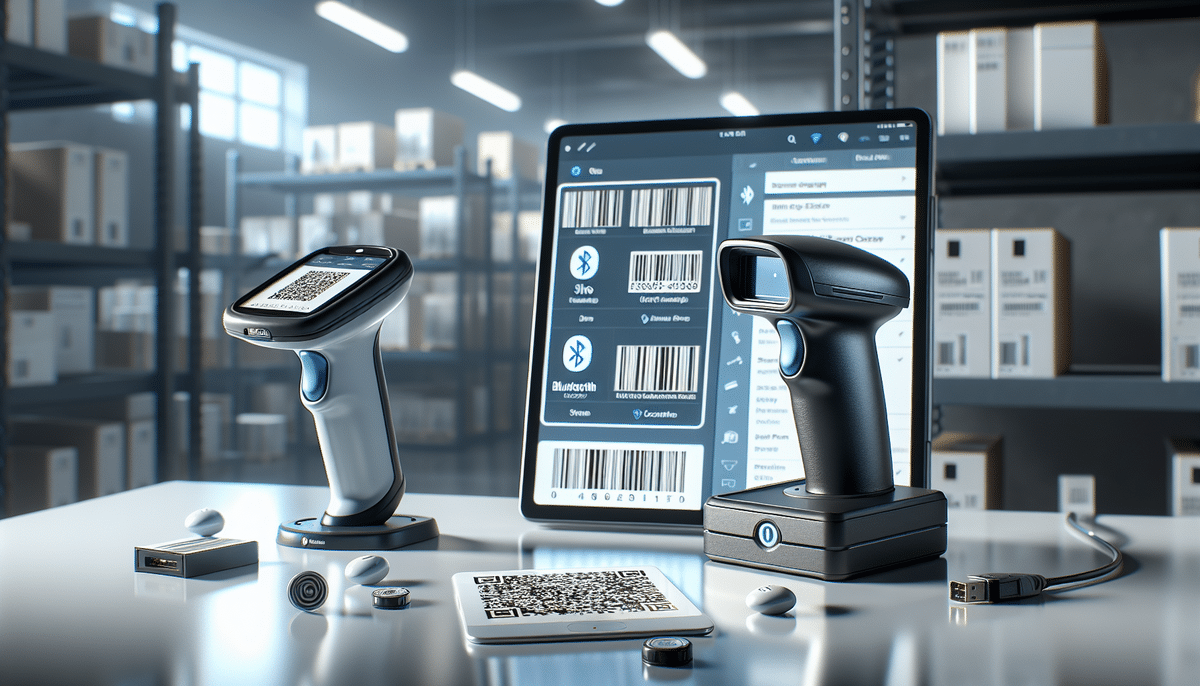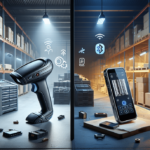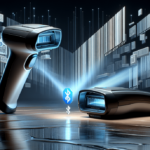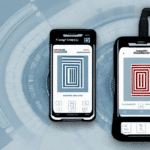Socket Mobile S700 vs Honeywell Xenon 1900g: A Comprehensive Comparison
Are you searching for the ultimate barcode scanner to enhance your business operations? If you're reading this, you're likely considering two leading options: the Socket Mobile S700 and the Honeywell Xenon 1900g. Both devices are top performers in the market, but which one is the best fit for your business? This detailed comparison will help you make an informed purchasing decision.
Design and Build
- Socket Mobile S700: Features a slim, lightweight design made from high-quality materials, making it highly portable and ideal for businesses that require frequent mobility.
- Honeywell Xenon 1900g: Boasts a more robust and rugged design, suitable for harsh environments like manufacturing plants and warehouses.
In terms of scanning capabilities, the Xenon 1900g has the edge with a higher scanning speed and the ability to read barcodes from greater distances, including 2D barcodes, whereas the S700 is limited to 1D barcodes.
Scanning Performance
- Honeywell Xenon 1900g: Utilizes advanced scanning technology capable of reading barcodes from up to two feet away and excels in scanning damaged or poorly printed codes.
- Socket Mobile S700: Effective within a six-inch range, suitable for standard retail environments but may struggle with damaged barcodes.
According to a survey by Statista, 85% of businesses reported improved operational efficiency after implementing advanced barcode scanners like the Xenon 1900g. The durability of the Xenon 1900g, which can withstand multiple drops from six feet, makes it more suitable for rugged industrial settings compared to the less rugged S700.
Features and Functionality
- Socket Mobile S700:
- User-friendly interface
- Bluetooth connectivity
- Rechargeable battery lasting up to 16 hours
- IP54 rating for dust and water resistance
- Compatible with iOS, Android, and Windows
- Honeywell Xenon 1900g:
- Advanced scanning technology for 1D, 2D, and PDF417 barcodes
- Dual-field optical platform for high-density and standard-range scanning
- Durable design with housing that withstands up to 50 drops from six feet
- Multiple connectivity options: USB, RS-232, and keyboard wedge
- Compatible with most operating systems
Both scanners are equipped with software development kits (SDKs) that allow businesses to integrate them into custom applications, enhancing functionalities such as inventory management and point-of-sale systems. The S700’s SDK is noted for its comprehensive documentation, making it accessible to developers of all skill levels, while the Xenon 1900g offers robust integration options for enterprise-level solutions.
User Experience
- Socket Mobile S700: Offers a simple, intuitive interface that is easy to master, making it ideal for businesses seeking a straightforward scanning solution.
- Honeywell Xenon 1900g: While highly capable, it comes with advanced features that may require additional training to utilize effectively.
Compatibility is also a consideration. The S700 supports multiple operating systems, whereas the Xenon 1900g is primarily compatible with Windows, which may influence your choice based on your existing systems.
Battery Life
- Socket Mobile S700: Up to 16 hours of battery life, rechargeable via USB or a charging cradle.
- Honeywell Xenon 1900g: Lasts up to 14 hours, with charging available only through a charging cradle.
Additionally, the S700 is lighter at 4.7 ounces compared to the Xenon 1900g's 7.9 ounces, offering greater portability for users who carry the device frequently.
Pricing and Value
- Socket Mobile S700: Generally less expensive, making it a cost-effective choice for budget-conscious businesses.
- Honeywell Xenon 1900g: Slightly higher in price but offers a longer 5-year warranty compared to the S700's 3-year warranty, emphasizing its durability and long-term reliability.
For businesses prioritizing long-term investment and product reliability, the Xenon 1900g may offer better value despite the higher initial cost.
Pros and Cons
Socket Mobile S700
- Pros:
- Lightweight and portable
- Long battery life (up to 16 hours)
- User-friendly interface
- Bluetooth connectivity for wireless scanning
- Compatibility with iOS, Android, and Windows
- Cons:
- Limited scanning range (six inches)
- Cannot read 2D barcodes
- Higher price point for small businesses
Honeywell Xenon 1900g
- Pros:
- Advanced scanning technology for 1D, 2D, and PDF417 barcodes
- Long battery life (up to 14 hours)
- Durable design withstands harsh environments
- Ability to scan from a distance (up to two feet)
- Longer warranty period (5 years)
- Cons:
- Higher cost
- Requires training to utilize advanced features
- Limited compatibility primarily with Windows
Which Barcode Scanner is Right for Your Business?
- Choose the Honeywell Xenon 1900g if:
- Your business operates in a rugged or industrial environment
- You require advanced scanning capabilities, including 2D barcode reading
- You need a durable device with a longer warranty
- Choose the Socket Mobile S700 if:
- You need a lightweight and portable scanner
- Your operations span multiple operating systems like iOS, Android, and Windows
- You prefer a cost-effective solution with a user-friendly interface
Conclusion: Which Barcode Scanner is Right for You?
Both the Socket Mobile S700 and Honeywell Xenon 1900g are exceptional barcode scanners that cater to different business requirements. The Socket Mobile S700 is ideal for businesses seeking a versatile, user-friendly, and cost-effective solution, especially those operating across various platforms. Conversely, the Honeywell Xenon 1900g is perfect for businesses that demand robust performance, advanced scanning technology, and durability in challenging environments.
Ultimately, your choice should align with your business needs, operational environment, and budget considerations. For more detailed information and to explore these barcode scanners, visit the Socket Mobile and Honeywell official websites.






















